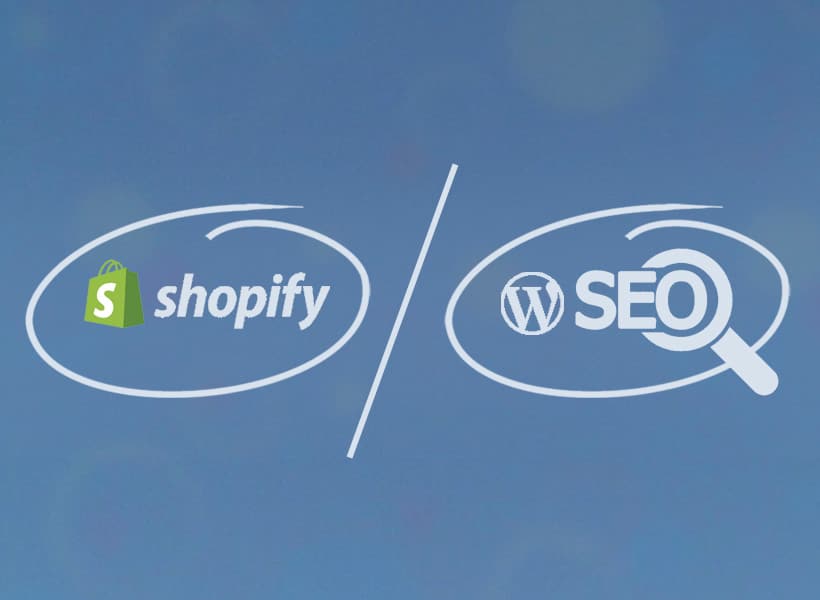Shopify vs WordPress SEO: Unveiling the Best Platform for Your E-commerce Endeavours

In the area of e-trade, optimizing your internet site for engines like google is paramount for visibility and success. Two of the most famous structures, Shopify and WordPress, provide distinct methods to search engine optimization (Search Engine Optimization). Let’s delve into the nuances of each to determine which is higher acceptable to your on-line commercial enterprise.
Shopify: Streamlined and User-Friendly
Shopify is renowned for its simplicity and ease of use. Its built-in search engine marketing capabilities make it a possible alternative for beginners and small organizations looking to establish a web presence speedy. With functions like customizable meta tags, easy URL systems, and mobile-responsive issues, Shopify empowers customers to optimize their sites without full-size technical expertise.
WordPress: Customization and Control
WordPress, on the other hand, gives exceptional flexibility and manipulate over everything of your internet site, together with search engine marketing. With a plethora of SEO plugins consisting of Yoast SEO and Rank Math, WordPress lets in for granular optimization of meta titles, descriptions, and schema markup. Its strong running a blog ability also contribute to higher search engine scores and elevated natural visitors.
Key Considerations
- Ease of Use: Shopify excels in simplicity, even as WordPress offers a steeper studying curve however greater customization alternative.
- Scalability: Shopify is good for small to medium-sized corporations, whereas WordPress is favored through large companies in search of significant customization and scalability.
- Cost: Shopify operates on a subscription-based version with month-to-month costs, whilst WordPress requires web hosting and area charges, albeit with more control over costs in the end.
Making the Choice
- Choose Shopify if you prioritize ease of use, quick setup, and built-in SEO features, perfect for novices and people with confined technical knowledge.
- Opt for WordPress in case you price customization, scalability, and superior SEO abilities, appropriate for installed agencies and people with unique branding requirements.
Harnessing Content Marketing Opportunities
- In eCommerce SEO, content marketing plays a pivotal role in driving organic traffic and enhancing brand authority. While both Shopify and WordPress aid content material introduction, WordPress’s blogging talents offer a wonderful gain. With WordPress, you may create complete blog posts, product courses, and tutorials to goal long-tail keywords and deal with patron pain factors efficaciously. This content now not simplest improves your seek engine ratings however additionally fosters accept as true with and loyalty among your target market, ultimately main to better conversion charges and sustained increase.
- Plugin Ecosystem: WordPress boasts a significant environment of plugins past just search engine marketing equipment. While this can be overwhelming for a few users, it affords infinite opportunities for reinforcing your internet site’s functionality, together with search engine marketing. With plugins for picture optimization, web page pace development, and dependent facts markup, WordPress allows you to fine-tune every issue of your web page’s search engine marketing approach in keeping with your specific needs.
- Security: Both Shopify and WordPress prioritize security, however their processes fluctuate. Shopify, being a hosted platform, looks after protection updates and tracking, reducing the burden on customers. WordPress, as a self-hosted platform, calls for customers to actively control security measures, which include updates to themes, plugins, and middle software program. While this offers extra control, it also method customers need to stay vigilant against capacity vulnerabilities.
Integration with Third-Party Tools
Shopify gives seamless integration with numerous 0.33-birthday party gear and services, simplifying tasks together with electronic mail advertising, social media control, and stock management. This incorporated technique can streamline your workflow and make contributions to ordinary efficiency. On the opposite hand, WordPress’s open-source nature allows for even deeper integrations with a wider range of third-celebration services, providing exceptional flexibility in building a complete e-commerce environment.
Community Support and Resources
WordPress blessings from a full-size and lively network of builders, designers, and customers who make contributions to its boom and offer guide thru boards, tutorials, and documentation. This wealth of assets may be helpful for troubleshooting issues, studying new techniques, and staying updated at the modern-day traits in search engine marketing and e-trade. While Shopify also gives aid sources, which include documentation and a community forum, it is able to no longer healthy the sheer scale and diversity of the WordPress network.
Internationalization and Multilingual Support
If you intend to target international markets or cater to multilingual audiences, WordPress’s multilingual plugins and issues offer a more sincere solution in comparison to Shopify. With plugins like WPML (WordPress Multilingual Plugin) or Polylang, you may easily translate your whole web site, which include product descriptions, weblog posts, and navigation factors, to attain a worldwide target audience effectively.
By considering these additional elements along those previously mentioned, you can make a greater informed choice approximately whether Shopify or WordPress is the best platform in your e-trade SEO needs.
Conclusion
Both Shopify and WordPress offer robust SEO capabilities tailored to the needs of e-commerce businesses. Your choice ultimately depends on factors such as your technical proficiency, budget, and long-term goals. Whether you prioritize simplicity or customization, optimizing your online store for search engines is crucial for driving traffic, increasing conversions, and achieving sustainable growth in the competitive e-commerce landscape.


